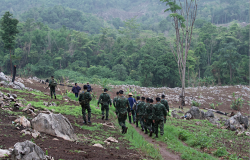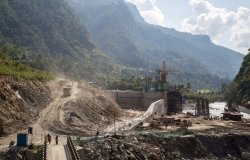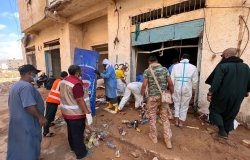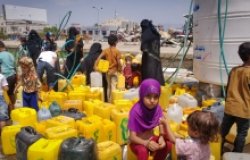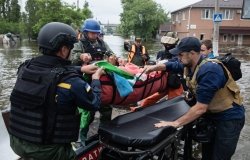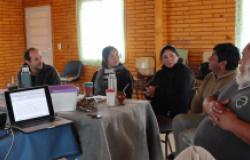"Water for the Poor" Critical to Global Development, National Security
FEBRUARY 2006--Congressman Blumenauer Discusses New U.S. Law at the Wilson Center
A groundbreaking new law authorizes the President to redouble foreign aid efforts to promote access to clean water and sanitation. The Senator Paul Simon Water for the Poor Act—honoring the late Democratic senator from Illinois, an early advocate of worldwide access to safe water—was signed into law in December 2005 by President George W. Bush. Co-sponsored by 101 House members and passed unanimously in the Senate, this bipartisan legislation directs the Secretary of State to develop a detailed strategy for integrating water and sanitation programs into U.S. foreign policy. The law also calls upon the United States to fulfill its commitment to the Millennium Development Goal (MDG) to halve the percentage of people without access to safe water by 2015—the first time that an MDG has been adopted as part of U.S. law.
Please join us on Tuesday, February 14, as Congressman Earl Blumenauer (D-OR), the bill's primary author in the House, discusses the next steps for implementing this timely law. "This bill is a critical first step in the bipartisan efforts to fight poverty, protect the environment, promote national security, and save lives through clean water and sanitation," said Blumenauer in a statement. "The time is right for the United States to act on water and sanitation while it is a low-cost and high-return investment on foreign assistance," the Wilson Center's Geoffrey Dabelko testified in hearings on the bill. "It is critical to act now before the negative security impacts become more apparent, and while the benefits are still within reach."
RSVP to this event, or watch the live webcast.
Related Program

Environmental Change and Security Program
The Environmental Change and Security Program (ECSP) explores the connections between environmental change, health, and population dynamics and their links to conflict, human insecurity, and foreign policy. Read more
